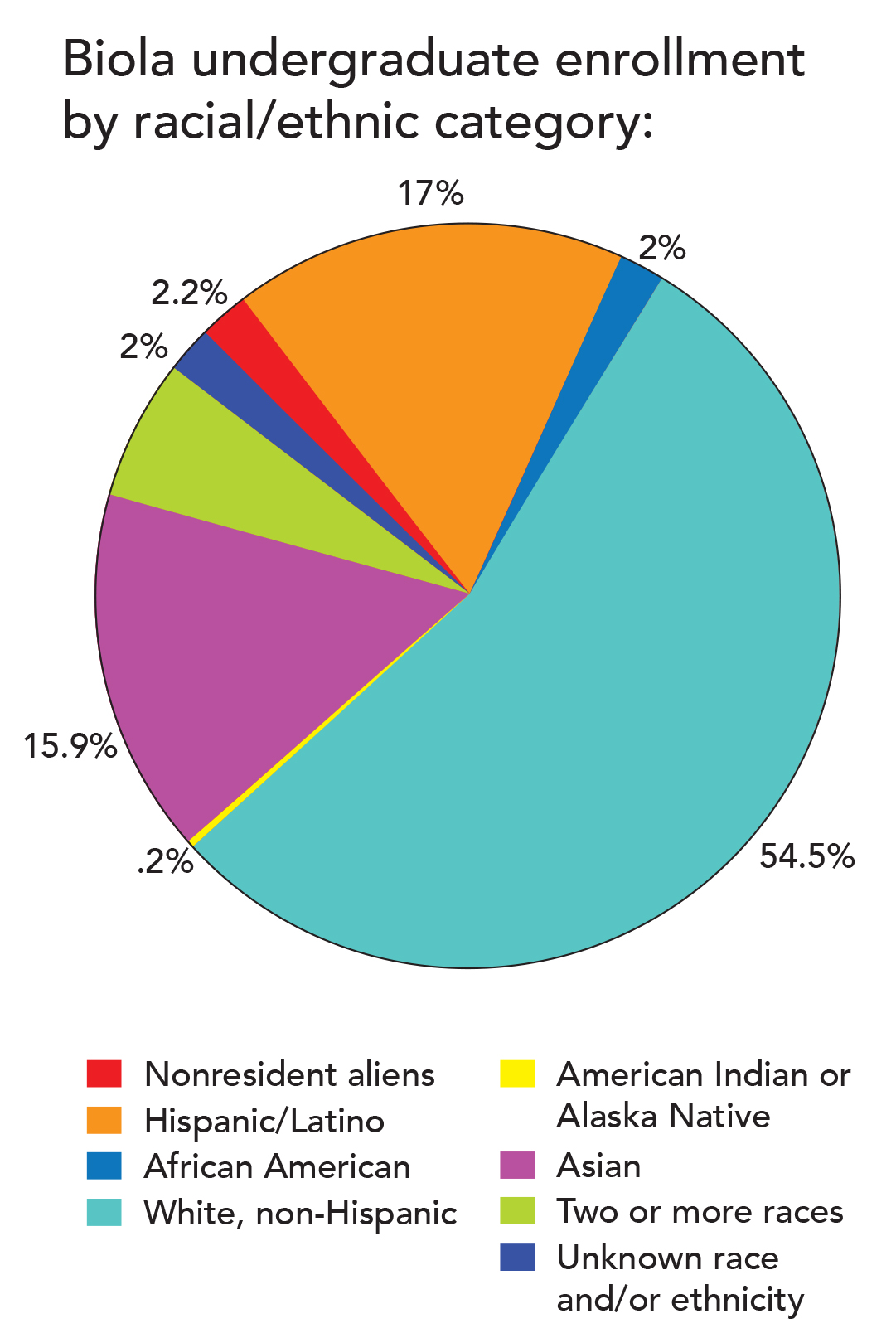
While working as an ambassador for Biola in 2011, senior sociology major Lydia Rankin did not foresee that she would encounter tension regarding her ethnicity from her peers.
“I was talking to some of my coworkers who were white and I was talking about black hair and the differences between black hair and white hair and they, like, shut me down and they said ‘Don’t talk about that. Like, that’s pointing out differences. We’re not supposed to be doing that.’ That was awkward and weird,” Rankin said.
Throughout her time at Biola, Rankin has received offensive remarks regarding her ethnicity not only from those coworkers, but with other students as well. Similar instances across campus have prompted administration to re-evaluate how to prevent any type of racial comment, either from a peer or a professor, on campus.
Associated Students created a diversity liaison position last spring semester and since then Cal Calica, this year’s diversity liaison, attends senate meetings and provides weekly updates to senators concerning minority issues and events. Furthermore, Calica created an assistant position in hopes of attending a greater number of diversity events and establishing relationships that spur awareness of multi-ethnic cultures on campus.
“I haven't experienced what other people have experienced on this campus, and I can’t speak for them. But from what I’ve heard it is really hard for some people to be on this campus. So yes, racial tension still exists,” said Cal Calica, associated students diversity liaison.
STUDENTS TARGETED
Students have reported issues with both students and faculty. Senior nursing and sociology major Michelle Kim was upset when she heard a professor speak in stereotypes. Kim, who immigrated to America from North Korea when she was 14 years old, has worked with many international students during her work with global student services and multi-ethnic programs and development.
“He had this idea that all international students are Asian. We have students from Egypt, students from Greece, students from, you know, Peru, so many different countries, and yet to say that internationals tend to be Asian, that’s not true at all. When he made that comment I was so offended,” Kim said.
Rankin described another instance with a coworker in which she asked if he was going to attend Sola Soul. The coworker said he was not attending because he was not African-American. When Rankin clarified that it was not solely an African-American event, the coworker insisted that is was.
“He said ‘really, Lydia, that’s who’s going to be there.’ I just thought that it was ridiculous,” Rankin said.
Many students have experienced micro-aggressions at Biola, which includes questions, comments or even intended compliments that insult a marginalized group, and believe these instances necessitate discussion.
“I think voices need to start being heard, not in a manner of pointing fingers or blaming or anything, but in a manner of just raising awareness,” Rankin said.
WORK IN PROGRESS
Biola’s administration is in the process of developing an informed multi-ethnic student community by educating students and faculty of micro-aggressions, other verbal offenses and how they can be formally addressed.
“Yes, so you see micro-aggression happen, like people say that often times unconsciously but they’ll say things that are tied to like ethnic groups or specifically based upon their race and they don’t know that they are or sometimes they do know what they are and both of those are micro-aggressions,” said Tamra Malone, director of diversity initiatives.
By recognizing the issue, administration will continue to reach out to students that need to be heard and aim to provide resources. The student grievance procedure provides one option, this process involving two students to discussing micro-aggression instances against one another in a non-accusatory environment
“It’s not to ostracize and make that person that committed the micro-aggression feel bad about themselves. Obviously on a Christian campus it’s going to be different. There’s going to be grace in that,” Calica said.
Another resource, the exit survey process, allows students who transfer out of Biola to take an optional survey. Out of 95 exit surveys completed since spring 2014, five students said they left Biola due to a lack of racial or ethnic diversity, said Carrie Stockton, dean of student success.
“I want to actually shape that survey a little bit more to get under the surface of some of these things,” Stockton said.
Global student program and development strives to become a voice for those who feel overlooked and educate all students on how to interact with each other as part of the kingdom of God, said Stephanie Sanford, director of global student programs and development.
“We are going to be worshipping together one day all in heaven. Why don’t we start doing it now,” Sanford said.







